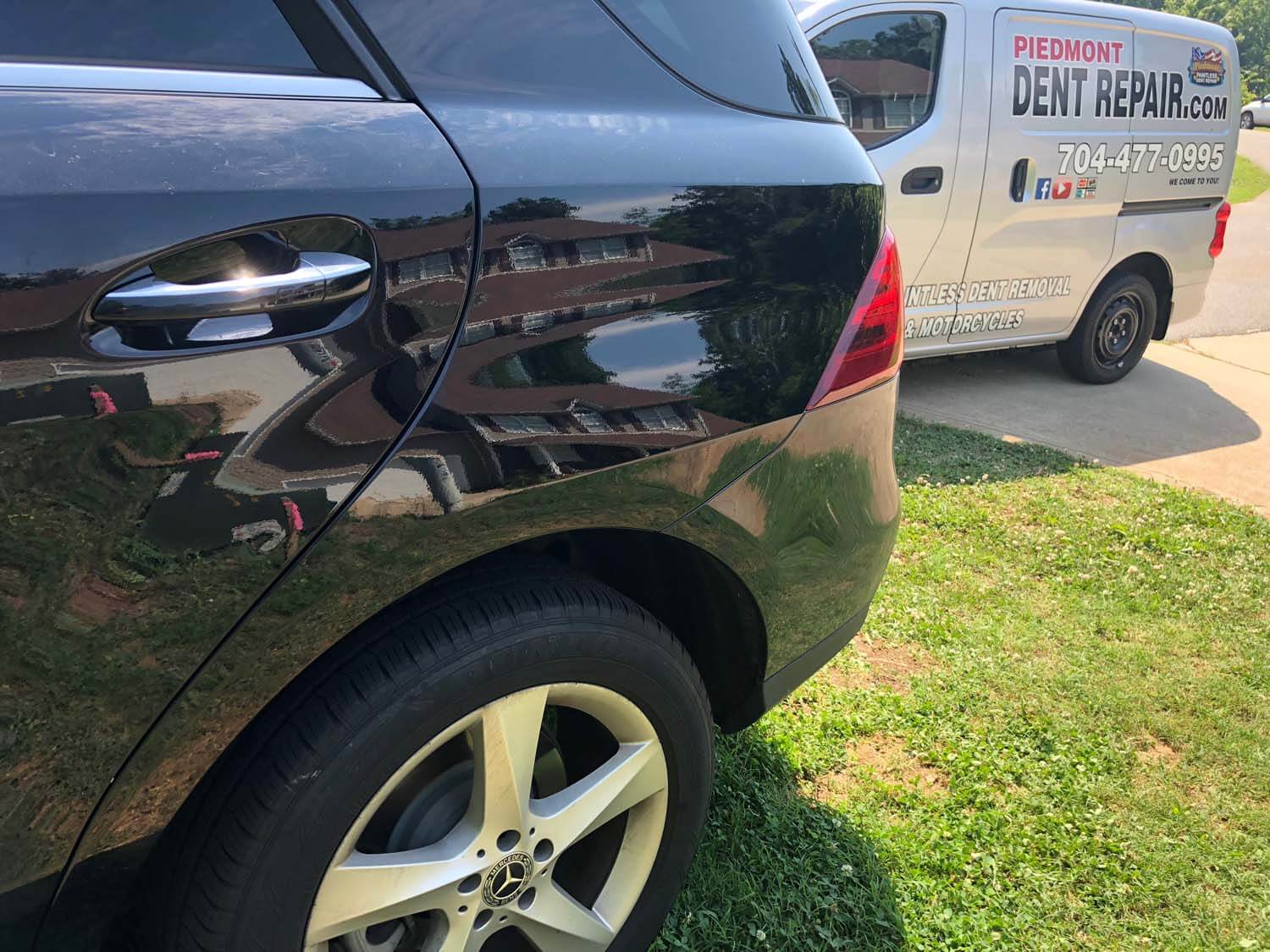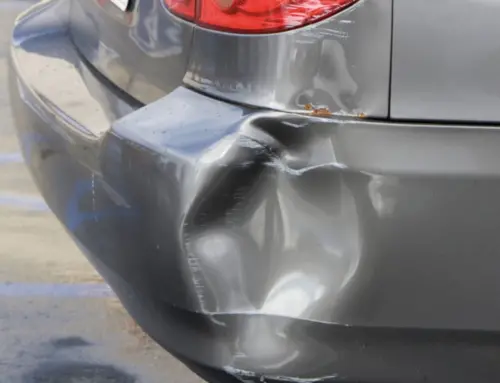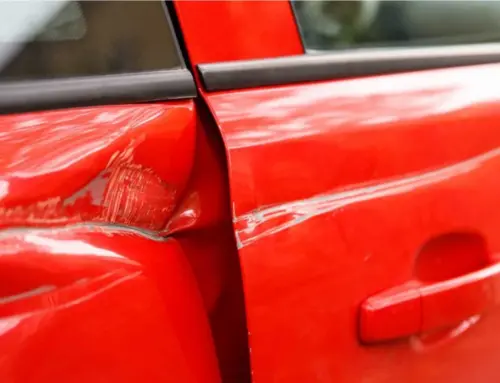Even minor dents on a vehicle can have a surprisingly big impact when it’s time to sell. While small imperfections might seem easy to overlook, they can quietly lower your car’s resale value over time. Buyers and dealers alike often view visible dents as signs of neglect, which can lead to reduced offers and tougher negotiations. Beyond appearance, untreated dents can lead to issues like rust and paint degradation, further harming the vehicle’s condition and appeal.
Understanding the financial implications of a well-maintained exterior might just change how you view minor repairs. Let’s explore why a proactive approach to vehicle care can make all the difference when it’s time to sell.
How do untreated dents affect a vehicle’s resale value over time?
Untreated dents can significantly negatively impact a vehicle’s resale value over time, affecting both perception and marketability. Here are several ways in which untreated dents influence resale value:
- Aesthetic Appeal: Visible dents detract from the overall appearance of the vehicle. Potential buyers often perceive a car with imperfections as poorly maintained, leading to lower offers or reluctance to purchase.
- Perceived Maintenance Issues: Buyers may assume that untreated dents indicate other underlying issues with the vehicle. This perception can raise concerns about how well the vehicle has been cared for, diminishing its value.
- Negotiation Leverage: When a car has visible damage, buyers may use it as leverage to negotiate a lower price. Sellers could lose thousands of dollars due to the dent’s impact on perceived value.
- Risk of Further Damage: Dents can lead to paint damage, exposing the metal underneath to rust and corrosion. This can result in more extensive repair needs, ultimately costing the seller more in the long run.
- Marketability: Cars that appear well-maintained are more attractive to buyers. Untreated dents can make a vehicle less competitive, leading to longer selling times and reduced offers.
Untreated dents can significantly lower a vehicle’s resale value by affecting its aesthetic appeal, perceived maintenance, and marketability. Addressing these issues promptly can help preserve the vehicle’s worth over time.
What are the financial implications of leaving dents unrepaired on a car?
Leaving dents unrepaired on a car can have several financial implications, affecting immediate costs and long-term value. Here are some key considerations:
- Reduced Resale Value: Dents can significantly decrease a vehicle’s resale value. Potential buyers may offer less for a car with visible damage, perceiving it as poorly maintained and less desirable. This can lead to a loss of hundreds or even thousands of dollars when selling.
- Increased Repair Costs: Over time, untreated dents can lead to further damage, such as paint chipping or rust formation. Addressing these secondary issues often requires more extensive repairs, resulting in higher costs than fixing the dent initially.
- Insurance Implications: If a dent leads to more severe damage, such as rusting that affects structural integrity, it may become an insurance issue. Depending on your coverage, the costs to repair extensive damage outweigh what would have been spent on a simple dent repair.
- Potential Liability: Dents can affect the vehicle’s safety features, such as airbag deployment, in certain scenarios. If an accident occurs and the damage is related to untreated dents, the owner may face liability claims or increased premiums.
- Impact on Loan Payoff: For those financing their vehicle, a decreased resale value means a potential shortfall when selling or trading in the car, leading to financial strain as they may still owe more than the car is worth.
The financial implications of leaving dents unrepaired include reduced resale value, increased repair costs, potential insurance issues, and liability risks, which can add up significantly over time.
Does the appearance of dents impact potential buyers’ interest in a vehicle?
Yes, the appearance of dents can significantly impact potential buyers’ interest in a vehicle. Here are several ways in which visible dents affect buyer perception and engagement:
- First Impressions: Dents create a negative first impression. When potential buyers see a vehicle with visible damage, they may perceive it as neglected or poorly maintained, deterring them from considering the purchase.
- Perceived Value: Dents can lower a vehicle’s perceived value. Buyers often associate the condition of the exterior with the overall care the vehicle has received, leading them to question the vehicle’s mechanical reliability.
- Negotiation Leverage: Buyers may use the presence of dents as a negotiating tactic to lower the purchase price. They might offer significantly less than the asking price, expecting the seller to account for repair costs, which can frustrate sellers and reduce interest.
- Competitiveness in the Market: In a competitive market, a vehicle with dents may need help attracting interest compared to similar models in pristine condition. Buyers are likely to choose a well-maintained vehicle over one with visible imperfections.
- Emotional Appeal: Aesthetics play a critical role in car-buying decisions. Buyers are often emotionally connected to their potential purchase, and a car that looks damaged may fail to evoke the excitement they seek.
The appearance of dents can greatly impact potential buyers’ interest by influencing first impressions, perceived value, negotiation strategies, competitiveness, and emotional appeal.
Can leaving dents untreated lead to further damage to a car?
Yes, leaving dents untreated can lead to further damage to a car, resulting in more extensive repairs and increased costs. Here are several ways untreated dents can cause additional issues:
- Paint Damage: Dents can compromise the integrity of the vehicle’s paint, leading to chipping or cracking. This exposed area is vulnerable to environmental elements, accelerating deterioration and forming rust.
- Rust Formation: When moisture penetrates the damaged area, rust can develop on the metal beneath the paint. Once rust starts, it can spread rapidly, causing further structural damage and requiring more expensive repairs.
- Structural Integrity: Dents can sometimes affect a vehicle’s structural integrity. If the dent is deep or near critical components, it could lead to alignment issues, affecting the car’s handling and safety.
- Increased Repair Costs: Addressing minor dents promptly is typically less expensive than dealing with the consequences of untreated damage. As the damage worsens, repair costs can escalate, requiring more extensive and costly interventions.
- Impact on Resale Value: The longer dents remain untreated, the more likely they will lead to further damage, which can significantly reduce the vehicle’s resale value. Buyers are often wary of purchasing cars with visible damage or potential underlying issues.
Leaving dents untreated can lead to paint damage, rust formation, structural integrity issues, increased repair costs, and decreased resale value, making timely repairs essential for maintaining a vehicle’s condition.
Protect Your Investment: Repair Dents Before Selling!
At Piedmont Dent Repair, we understand that your vehicle is a significant investment. Leaving dents unrepaired can diminish its value and turn away potential buyers. Our expert team specializes in high-quality dent repair that restores your car’s appearance and enhances its market appeal. By addressing dents before selling, you improve aesthetics and avoid costly negotiations and potential losses. We use advanced techniques to ensure your vehicle looks its best, helping you maximize its resale value. Don’t let dents hold you back—contact Piedmont Dent Repair today to protect your investment and prepare your car for sale!





